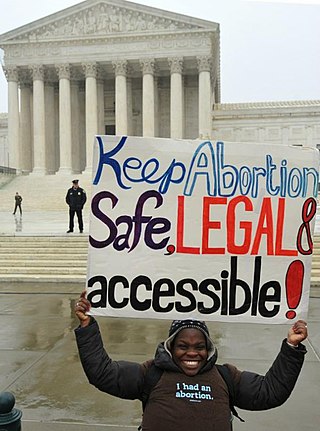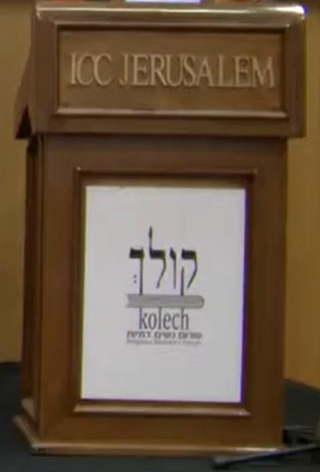Feminist legal theory, also known as feminist jurisprudence, is based on the belief that the law has been fundamental in women's historical subordination. Feminist jurisprudence the philosophy of law is based on the political, economic, and social inequality of the sexes and feminist legal theory is the encompassment of law and theory connected.The project of feminist legal theory is twofold. First, feminist jurisprudence seeks to explain ways in which the law played a role in women's former subordinate status. Feminist legal theory was directly created to recognize and combat the legal system built primarily by the and for male intentions, often forgetting important components and experiences women and marginalized communities face. The law perpetuates a male valued system at the expense of female values. Through making sure all people have access to participate in legal systems as professionals to combating cases in constitutional and discriminatory law, feminist legal theory is utilized for it all.

Intersectionality is a sociological analytical framework for understanding how groups' and individuals' social and political identities result in unique combinations of discrimination and privilege. Examples of these factors include gender, caste, sex, race, ethnicity, class, sexuality, religion, disability, height, age, weight, species and physical appearance. These intersecting and overlapping social identities may be both empowering and oppressing. However, little good-quality quantitative research has been done to support or undermine the practical uses of intersectionality.
Transnational feminism refers to both a contemporary feminist paradigm and the corresponding activist movement. Both the theories and activist practices are concerned with how globalization and capitalism affect people across nations, races, genders, classes, and sexualities. This movement asks to critique the ideologies of traditional white, classist, western models of feminist practices from an intersectional approach and how these connect with labor, theoretical applications, and analytical practice on a geopolitical scale.

Barbara Smith is an American lesbian feminist and socialist who has played a significant role in Black feminism in the United States. Since the early 1970s, she has been active as a scholar, activist, critic, lecturer, author, and publisher of Black feminist thought. She has also taught at numerous colleges and universities for 25 years. Smith's essays, reviews, articles, short stories and literary criticism have appeared in a range of publications, including The New York Times Book Review, The Black Scholar, Ms., Gay Community News, The Guardian, The Village Voice, Conditions and The Nation. She has a twin sister, Beverly Smith, who is also a lesbian feminist activist and writer.
Gender mainstreaming is the public policy concept of assessing the implications for people of different genders of a planned policy action, including legislation and programmes. Mainstreaming offers a pluralistic approach that enhances diversity among people of different genders.
Founded in 1994, Alternatives, Action and Communication Network for International Development, is a non-governmental, international solidarity organization based in Montreal, Quebec, Canada.
Adva Center is a non-partisan Israeli policy analysis center based in Tel Aviv.
The Women's Electoral Lobby (WEL) is a feminist, non-profit, self-funded, non-party political, lobby group founded in 1972 during the height of second-wave feminism in Australia. WEL's mission is to create a society where women's participation and potential are unrestricted, acknowledged and respected and where women and men share equally in society's responsibilities and rewards.

Reproductive justice is a critical feminist framework that was invented as a response to United States reproductive politics. The three core values of reproductive justice are the right to have a child, the right to not have a child, and the right to parent a child or children in safe and healthy environments. The framework moves women's reproductive rights past a legal and political debate to incorporate the economic, social, and health factors that impact women's reproductive choices and decision-making ability.
Awatef Rasheed is an Iraqi Canadian writer, secular women's rights activist, and the first Iraqi female recipient of Femmy Award. She is a recipient of the Iraqi Women's Initiative Award from the Iraqi Women's Network in 2010. Awatef Rasheed is currently a Regional Adviser for the, Urgent Action Fund for Women's Rights in USA. She served as a board member for the Canadian Research Institute for Advancement of Women (CRIAW) from 2009- 2012 and previously served on the steering committee for Feminists for Just and Equitable Public Policy (FemJEPP). She has also been a member of the Canadian Federation of University Women, and a representative for the Iraqi Al-Amal Association,

Historically speaking, lesbian, gay, bisexual, and transgender (LGBT) people have not been given equal treatment and rights by both governmental actions and society's general opinion. Much of the intolerance for LGBT individuals come from lack of education around the LGBT community, and contributes to the stigma that results in same-sex marriage being legal in few countries (31) and persistence of discrimination, such as in the workplace.
Feminism in Thailand is perpetuated by many of the same traditional feminist theory foundations, though Thai feminism is facilitated through a medium of social movement activist groups within Thailand's illiberal democracy. The Thai State claims to function as a civil society with an intersectionality between gender inequality and activism in its political spheres.
Feminist Digital Humanities is a more recent development in the field of Digital Humanities, a project incorporating digital and computational methods as part of its research methodology. Feminist Digital Humanities has risen partly because of recent criticism of the propensity of Digital Humanities to further patriarchal or hegemonic discourses in the Academy. Women are rapidly dominating social media in order to educate people about feminist growth and contributions. Research proves the rapid growth of Feminist Digital Humanities started during the post-feminism era around from the 1980s to 1990s. Such feminists’ works provides examples through the text technology, social conditions of literature and rhetorical analysis. Feminist Digital Humanities is aimed to identify and explore women's sense of writing as well as to prove widespread of women's work in most of the digital archive.
Michael Kaufman is a Canadian author, educator, and theorist focused on engaging men and boys to promote gender equality, end violence against women, and end self-destructive ideals of manhood. He co-founded the White Ribbon Campaign in 1991, the largest network of men working to ending violence against women worldwide. Michael Kaufman also co-founded the Men for Women's Choice campaign with Gordon Cleveland in 1989. He is a senior fellow of Instituto Promundo, an NGO based in Rio de Janeiro and Washington, D.C.
Hijas de Cuauhtémoc was a student Chicana feminist newspaper founded in 1971 by Anna Nieto-Gómez and Adelaida Castillo while both were students at California State University, Long Beach.

Genevieve Fiore (1912–2002) was an American women's rights and peace activist, who was the founder, and served as the executive director, of the Colorado Division of United Nations Educational, Scientific and Cultural Organization (UNESCO). Her UNESCO Club was founded in the year the clubs were first conceived and was the third organization established in the world. In 1967 she was honored as one of the inductees for the Colorado Women of Achievement Award. She was knighted by Italy in 1975 receiving the rank of Cavaliere dell'Ordine della Stella d'Italia. In 1991, she was inducted into the Colorado Women's Hall of Fame for her many years of peace activism and work with women's rights issues.
White feminism is a term which is used to describe expressions of feminism which are perceived as focusing on white women but are perceived as failing to address the existence of distinct forms of oppression faced by ethnic minority women and women lacking other privileges. The term has been used to label and criticize theories that are perceived as focusing solely on gender-based inequality. Primarily used as a derogatory label, "white feminism" is typically used to reproach a perceived failure to acknowledge and integrate the intersection of other identity attributes into a broader movement which struggles for equality on more than one front. In white feminism, the oppression of women is analyzed through a single-axis framework, consequently erasing the identity and experiences of ethnic minority women the space. The term has also been used to refer to feminist theories perceived to focus more specifically on the experience of white, cisgender, heterosexual, able-bodied women, and in which the experiences of women without these characteristics are excluded or marginalized. This criticism has predominantly been leveled against the first waves of feminism which were seen as centered around the empowerment of white middle-class women in Western societies.
Founded in 1975, the Association of Black Anthropologists (ABA) is an American organization that brings together Black anthropologists in an effort to better highlight the history of African Americans, especially in regard to exploitation, oppression, and discrimination. It encourages, in particular, the involvement of Black students, including the recruitment of graduates, and establishes exchanges with African anthropologists. It publishes the journal Transforming Anthropology. The ABA seeks to address theories across academic disciplines that do not accurately represent the experience and oppression of communities of color and to aid and strengthen these theories with the inclusion of an African American historical perspective. It is one of the sections of the American Anthropological Association.

Lisa Bowleg is an applied social psychologist known for conducting research on intersectionality in social and behavioral science and the relationship between social-contextual factors and stress, resilience, and HIV risk in Black communities.

Kolech, also known as Kolech: Religious Women's Forum, is an Israeli women's organization associated with Orthodox Judaism. The group's stance is aligned with Orthodox Jewish feminism and religious Zionism.






